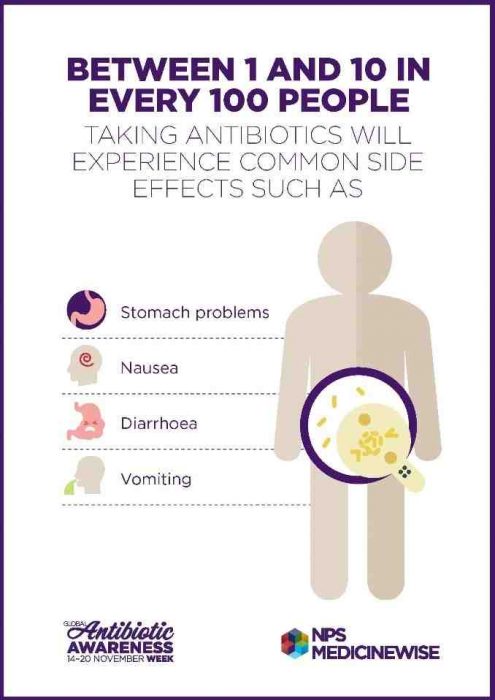This Antibiotic Awareness Week – November 14-20, Australians are being urged to handle antibiotics with care. It is not just the threat of antibiotic resistance, but because antibiotics use can also result in significant side effects for our inner and GUT health.
NPS MedicineWise medical adviser Dr Jeannie Yoo says that as well as adding to the threat of antibiotic resistance, antibiotics have other risks, and people need to weigh up the benefits of taking these medicines against possible harm.
“Antibiotics play an important role in the treatment of serious bacterial infections, but like all medicines, antibiotics have the potential to cause side effects,” says Dr Yoo.
Evolution of resistant bacteria to an increasing number of commonly prescribed antibiotic medicines has become a global threat and antibiotic therapy can have side effects individual health.
Antibiotics and the GUT
“Although many people may be aware of the potential side effects of antibiotics, they may be surprised about how common they are,” says Dr Yoo.

Some of these side effects are short-term – upto 10 in every 100 people taking antibiotics will experience common side effects such as stomach problems like diarrhoea, nausea and vomiting.
These side effects occur while targeting the pathogenic (“bad”) bacteria causing infection, but indirectly affects the balance of helpful bacteria living in the gut.
This disturbance leads to intestines absorbing less water and nutrients from food, resulting in diarrhoea.
In most cases these side effects are temporary. However, studies have also reported that in situations where the makeup of the gut bacteria is altered following antibiotic therapy, there is then, an increased risk of disease from pathogenic (“bad”) bacteria such as Clostridium difficile.
Infection with this bacterium can lead to serious, life-threatening diarrhoea.
Longer-term Impact
Increasingly, research shows there are also long-term consequences from antibiotic therapy impacting future health of the individual, and thus the community.
Until recently, the impact of antibiotics on the normal gut bacteria was thought to be temporary, or short-term, with any disturbances being restored several weeks after treatment.
“However, emerging research now suggests the effect may be more long-term in some people, with imbalances still present months and even years after a course of antibiotics,” says Dr Yoo.
“Different antibiotics can have different effects on the gut bacteria, and how significant the effect may be, depend on the strength (dose) of the medicine, how long it is taken for, if it is narrow- or broad-spectrum and how it is taken (e.g. oral, topical or injection).”
Handle Antibiotics with Care
“The fact is that antibiotics do cause side effects,” says Dr Yoo.
“In certain clinical situations, the benefits of antibiotics far outweigh the risks and that’s when they should be taken.
“However, by taking antibiotics when they are not needed, such as for self-limiting infections (infections that will get better on their own), you are unnecessarily risking both short-term side effects and longer-term effects on your gut health”.
It is well known that health of the gut impacts on overall health, making the effects of antibiotics potentially far reaching.
This Antibiotic Awareness Week, NPS MedicineWise is urging consumers and health professionals alike to use these precious medicines carefully and appropriately.
It is important “to ensure that we can continue to enjoy their benefits without unnecessarily experiencing their potential harms,” Dr Yoo said.
Mishka Anderson

